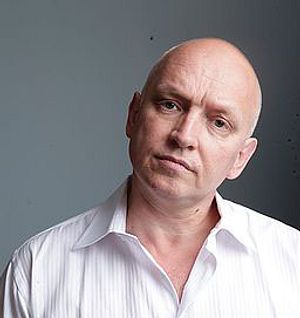Making good on an early August court order, the Kazakh authorities have released opposition politician Vladimir Kozlov on parole. The 56-year-old had been in jail since his conviction in 2012 on charges that he incited the fatal unrest in Zhanaozen and plotted to overthrow the government.
Kozlov, a former television journalist, entered the murky waters of Kazakh politics in 2001 when he joined the Democratic Choice of Kazakhstan party. Kozlov helped found the Alga! (Forward!) Party in 2005 after the Democratic Choice of Kazakhstan was banned ahead of the presidential elections that year. Kazakh authorities have not allowed the Alga! Party to register, but it is often cited as one of the largest opposition parties in the country.
Kozlov tried to contest the presidency in 2011 but was excluded from the April election. Kozlov and the Alga! Party teamed up with the Communist Party and a number of non-governmental organizations in calling for an election boycott. Nazarbayev went on to secure 95.5 percent of the vote and claimed 90 percent turnout, though the OSCE election observation mission said the poll lacked opposition candidates and “a vibrant political discourse,” resulting in “a non-competitive environment.”
In December 2011, the oil city of Zhanaozen was the site of a strike among workers that led to protests and ended in violence when security forces tried to clear protesters from the town’s square in preparation for Independence Day celebrations on December 16. More than a dozen people were killed when security forces fired on the protesters and the political fallout included arrests, trials of activists, and media restrictions.
Kozlov was among those held responsible by the state for the protests. Kozlov and his advocates argued that the charges were politically motivated.
Oil workers in Zhanaozen had begun striking in May 2011, demanding better wages. In June 2011 Kozlov met with the striking workers. As EurasiaNet’s Joanna Lillis wrote in October 2012:
Prosecutors’ arguments hinged on the existence of a criminal conspiracy in which Kozlov acted in cahoots with fugitive oligarch Mukhtar Ablyazov – currently on the run from British justice in a fraud case – to politicize the oil strike in a bid to overthrow Nazarbayev, Ablyazov’s foe. Speaking to Russia’s Pervyy Kanal the day before the verdict, Nazarbayev himself blamed “puppet masters” for the violence.
After his release, Kozlov thanked the European Union for its support. According to RFE/RL, Kozlov “said the EU and the European Parliament had helped him ‘remain a human being’ while in jail.” The EU issued a statement hailing Kozlov’s release as “positive news.” The EU urged that Kazakhstan release all civil society activists currently in jail and lift movement restrictions on others.
Kozlov, RFE/RL reported, said he would “continue doing everything to be useful for people,” despite some restrictions related to his parole.
As I’ve noted before when other jailed politicians and civil society activists have been released in the region, international pressure does yield individual results in Central Asia, though it has not necessarily led to the kind of systemic changes needed to prevent the arrest of such people in the first place on seemingly trumped-up charges.
Meanwhile, many of the conditions that led to Kozlov’s arrest remain: the state lacks a viable and legitimate opposition, presidential elections remain uncompetitive, and economic turmoil sends Kazakhs to the streets on rare, but more frequent, occasions.
In spring 2016 protests erupted across Kazakhstan directed toward Land Code changes. Rumor had it the changes would allow foreigners to buy up the steppe (it wasn’t true, but did stir up latent frustrations tied to government transparency and economic woes). There was no violence, but a large nationwide demonstration was prevented by authorities rounding up hundreds and jailing them briefly. Most were released but some organizers have pending charges similar to those that sent Kozlov to jail. Nazarbayev, who blamed “puppet masters” for the 2011 Zhanaozen violence, tried to pin the 2016 protests on foreign instigators seeking to foment a color revolution, among others.
In Zhanaozen a small protest this July–a two-hour strike–was met with a more measured response than in 2011.
































